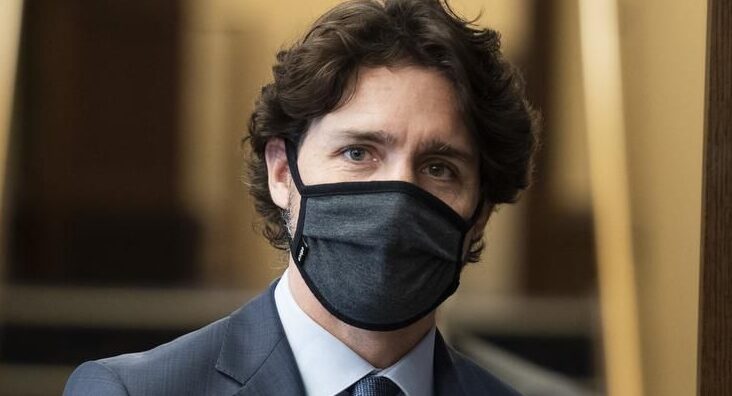Was checking WEF articles about the great reset and come across this one where the UN signed a strategic partnership with WEF back in June 2019 to usher in the reset. That's interesting timing in the virus timeline!
Reading over the WEF articles clarifies a few things.
Businesses or those parts of businesses that are seen as non-essential at the moment seem to be those businesses or services that could be provided online. Labelling a business or service non-essential seems to be a way of pressuring to adapt to the online environment to survive or be left in the dust.
This WEF article addresses agility and digital services taxes. Apparently France has already tried imposing a digital service tax and Trump responded by threatening a 100% tariff on French products.
In December 2019, WEF acknowledged that trust in governments and institutions was at an all time low so trust had to be 'redefined' and they mention 'Trust 4.0'. They acknowledge that trust is more stable in a democracy. They define Trust 1.0 as being interpersonal: "we lived in small communities and maintained close, direct relationships.[....] Trust at that time was centred on villages, tribes and other local networks. People trusted their own group and were sceptical of outsiders." Then during the industrial revolution, "Trust 2.0 became institutional. Corporations, governments and even schools became rigid structures to help build trust and maintain social cohesion as we navigated life in larger groups". Then the digital revolution redefined trust again when personal computers allowed people to connect with others that they didn't know and begin to trust the wisdom of the crowd - this was Trust 3.0.
On Trust 4.0 they say:
I haven't found a clue as to what plans are to bring this trust 4.0 about - but I'm guessing it has to do with censorship. Also there's an odd situation here in Australia with new political parties, they seem to be springing up and tapping into the concerns of those that haven't bought into the virus narrative. I wonder if they're doing that just to give a sense of trust. It seems to me that they would be more effective if they united. I'm reckon there's a bait and switch on it's way but it's hard to tell which angle it would come from at the moment. The seeming incompetence of the current governments are almost like a set up for presenting a candidate that present as more trustworthy.
In this 2016 article about the 4th Industrial Revolution they say:
I wonder if there is something about this new technology and the way that it changes people that is hidden by face masks and the idea behind the insistence of face masks despite all the evidence against using them is to change as many people as possible before the changes become apparent to the wider community?
The Strategic Partnership Framework will focus on the following areas:
- Financing the 2030 Agenda – Mobilize systems and accelerate finance flows toward the 2030 Agenda and the UN Sustainable Development Goals, taking forward solutions to increase long-term SDG investments.
- Climate change – Achieve clear, measurable and public commitments from the private sector to reach carbon neutrality by 2050, help create public-private platforms in critical high-emitting sectors, and scale up the services required to adapt to the impacts of climate change.
- Health – Support countries achieve good health and well-being for all, within the context of the 2030 Agenda, focusing on key emerging global health threats that require stronger multistakeholder partnership and action.
- Digital cooperation – Meet the needs of the Fourth Industrial Revolution while seeking to advance global analysis, dialogue and standards for digital governance and digital inclusiveness.
- Gender equality and the empowerment of women – Foster multistakeholder partnerships and coalitions for full participation and equal opportunities of women at all levels of decision-making and for productive participation of women in the labour force, and promote equal pay for work of equal value across sectors and occupations as well as within them.
- Education and skills – Promote public-private partnerships to address global reskilling and lifelong learning for the future requirements for work, and empower youth with competencies for life and decent work.
Reading over the WEF articles clarifies a few things.
Businesses or those parts of businesses that are seen as non-essential at the moment seem to be those businesses or services that could be provided online. Labelling a business or service non-essential seems to be a way of pressuring to adapt to the online environment to survive or be left in the dust.
This WEF article addresses agility and digital services taxes. Apparently France has already tried imposing a digital service tax and Trump responded by threatening a 100% tariff on French products.
In December 2019, WEF acknowledged that trust in governments and institutions was at an all time low so trust had to be 'redefined' and they mention 'Trust 4.0'. They acknowledge that trust is more stable in a democracy. They define Trust 1.0 as being interpersonal: "we lived in small communities and maintained close, direct relationships.[....] Trust at that time was centred on villages, tribes and other local networks. People trusted their own group and were sceptical of outsiders." Then during the industrial revolution, "Trust 2.0 became institutional. Corporations, governments and even schools became rigid structures to help build trust and maintain social cohesion as we navigated life in larger groups". Then the digital revolution redefined trust again when personal computers allowed people to connect with others that they didn't know and begin to trust the wisdom of the crowd - this was Trust 3.0.
On Trust 4.0 they say:
Now, with the Fourth Industrial Revolution underway, the model for trust must evolve once again. In a complex and ever-changing environment, we need a new model, Trust 4.0, that builds a bridge across tribes, cultures and systems; from peer-to-peer networks to top-down structures. We need to make room for the interpersonal, for institutions and individuals – we need to build interdependent trust, creating a multi-dimensional relationship across different stakeholders. Trust 4.0 enables existing and emerging systems to work together.
From disgruntled employees to disenfranchised citizens, there is work to do. There are a number of reasons why trust has been in decline, from societal factors to technological ones. This lack of trust is cause for concern, particularly because of its ripple effect on democracy and its disproportionate effect on young people. However, we can view this as an opportunity. If we can redefine trust, we can build a new model – creating the kind of future in which young people can believe.
I haven't found a clue as to what plans are to bring this trust 4.0 about - but I'm guessing it has to do with censorship. Also there's an odd situation here in Australia with new political parties, they seem to be springing up and tapping into the concerns of those that haven't bought into the virus narrative. I wonder if they're doing that just to give a sense of trust. It seems to me that they would be more effective if they united. I'm reckon there's a bait and switch on it's way but it's hard to tell which angle it would come from at the moment. The seeming incompetence of the current governments are almost like a set up for presenting a candidate that present as more trustworthy.
In this 2016 article about the 4th Industrial Revolution they say:
Emerging technologies, particularly in the biological realm, are also raising new questions about what it means to be human. The Fourth Industrial Revolution is the first where the tools of technology can become literally embedded within us and even purposefully change who we are at the level of our genetic makeup. It is completely conceivable that forms of radical human improvement will be available within a generation, innovations that risk creating entirely new forms of inequality and class conflict.
[....]
The goal of this reflection is naturally to ensure that emerging technologies and the Fourth Industrial Revolution improve lives in as broad-based and meaningful a way possible. However, even greater possibilities could emerge from bringing stakeholders together in new ways to discuss the future of technology and society.
As Schwab writes: “The new technology age, if shaped in a responsive and responsible way, could catalyse a new cultural renaissance that will enable us to feel part of something much larger than ourselves – a true global civilization… We can use the Fourth Industrial Revolution to lift humanity into a new collective and moral consciousness based on a shared sense of destiny.”
I wonder if there is something about this new technology and the way that it changes people that is hidden by face masks and the idea behind the insistence of face masks despite all the evidence against using them is to change as many people as possible before the changes become apparent to the wider community?





